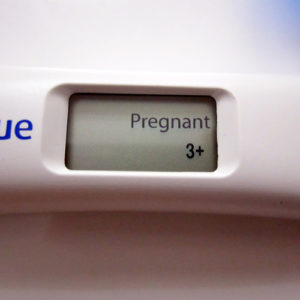When you start trying for a baby, it’s easy to make assumptions or mistakes that actually lower your chances of getting pregnant. From misunderstanding your own ovulation to having too much or too little sex, find out the top errors couples make when trying to conceive.
Not Pinpointing Ovulation Properly
Whilst the average menstrual cycle is 28 days with ovulation occurring around day 14, not every woman conforms. Your specific ovulation day will be roughly 14 days before your next period starts. So if your cycles run between 24 and 30 days, you likely ovulate between days 10 and 16.
Home ovulation test kits detecting key hormones can accurately show your personal fertile days each month. Pay attention to ovulation signs like changes in cervical mucus too. However, don’t rely solely on things like basal body temperature charts or cycle apps – they can be misleading. Use multiple ovulation tracking methods together for better accuracy.
Only Having Sex on the Day You Ovulate
Once released, an egg survives just 12-24 hours. However sperm can live for 3-5 days inside a woman. So the 6 days encompassing the 4 days before ovulation, plus ovulation day and the day after represent your overall fertile window.
Maximise chances by having sex every other day during this timeframe. You need sperm ready and waiting for whenever ovulation occurs. Having sex daily can actually slightly decrease male fertility over time, so every other day is perfect.
Having Sex Too Often
It seems logical that more sex equals higher pregnancy odds. But overly frequent ejaculation can reduce a man’s sperm count, needing a few days to recover.
Stick to sex every other day during peak fertility. This strikes the ideal balance between ensuring fresh sperm without overdoing it. Any more frequently and you risk the sperm quality dropping off.
Obsessing Over Positions
No evidence shows any one sex position is better than another for conception. Sperm reach the fallopian tubes to potentially meet an egg within seconds regardless.
The liquid that leaks out afterwards is mostly fluids rather than sperm themselves. So simply enjoy what feels good rather than twisting yourselves into uncomfortable positions!
Maintaining Unhealthy Habits
Ideally adopt a healthy lifestyle incorporating exercise, weight management, limited caffeine and no smoking, drugs or excessive alcohol prior to pregnancy. This optimises all-round health for both partners. For instance, being overweight can disrupt ovulation and lower egg quality in women. Smoking decreases sperm count and motility in men. And excessive alcohol intake negatively impacts fertility in you both.
So make changes well in advance of trying to conceive. Cut out any unhealthy vices, eat a nutrient-rich diet, stay active but don’t over-exercise. All these positive lifestyle factors help prepare your bodies for the rigors of pregnancy. Putting in the effort gives you the best possible chance of conceiving quickly.
Seeing a Fertility Specialist Too Soon or Too Late
Don’t rush off to a specialist if you’re under 35 and have only been trying 6 months. Up to a year is normal for healthy couples. If you’re over 35 see a specialist at 6 months.
Equally, if you have irregular cycles, prior infection, take over a year when under 35 or feel something’s not right, see your GP sooner. They can check for issues affecting conception.
Around 40% of fertility problems come from men. Even if you don’t yet need specialist help, get your partner to have a semen analysis so you know his sperm health.
Missing the Fertile Window
Many couples make the mistake of only having sex around the time they think the woman is ovulating based on her typical cycle length. However, sperm can survive for up to 5 days.
So you increase your odds by having sex every 2-3 days throughout the fertile window – the 5-6 days leading up to ovulation. This ensures there are sperm cells waiting to meet the egg when it’s released. Don’t miss this crucial window of opportunity each cycle.
Leaving Parenthood Too Late
Fertility declines significantly as women age, particularly from mid-30s onwards. Whilst career and financial stability matter, if you’re in a relationship and family is a priority, start trying earlier rather than later.
In your 20s, around 1 in 4 women will conceive naturally each cycle. But by 35-39 years old, these odds drop to 1 in 7. Have an honest discussion with your partner about your ideal family timelines. Don’t leave it too late to increase your chances of conception and a healthy pregnancy.
Not Considering Your Weight
Being overweight or underweight can impact ovulation and sperm health. Achieve a healthy BMI before trying to conceive for maximum fertility. An overweight woman has decreased egg quality and irregular ovulation, while a very slim woman may have issues with insufficient oestrogen production and lack of ovulation.
Similarly, obesity is linked to lower sperm counts and poor sperm motility in men. So aiming for a BMI in the normal range boosts the likelihood of conception for both partners. A modest weight loss of 5-10% can significantly improve fertility outcomes if you’re overweight. Just don’t restrict calories too severely as this can also disrupt hormone balance.
Underestimating Existing Health Conditions
Thyroid disorders, PCOS, endometriosis – even seemingly unrelated conditions – can affect ability to conceive. Get any long term illnesses optimally managed. An underactive thyroid slows metabolism and can prevent ovulation, while an overactive thyroid boosts miscarriage risks. PCOS causes hormonal imbalances that disrupt regular ovulation cycles.
Other diseases like diabetes, lupus, kidney problems and cancer treatments may reduce fertility too. Don’t assume conditions have no impact – speak to your doctor about any risk factors and receive appropriate treatment. With the right medication and monitoring, many women with pre-existing health issues can successfully get pregnant. Taking control of your health now gives you the best possible chances.
Overusing Lubricants
Many standard lubricants can harm sperm. Use a lubricant such as Pre-Seed or Conceive Plus which don’t affect sperm quality when extra moisture needed.
Letting Stress Build Up
Anxieties over not conceiving quickly can hinder ability to get pregnant. Practise regular self-care, communicate with your partner and seek support to avoid undue stress.
Avoiding common errors like these and understanding your own ovulation patterns better immediately puts you in a stronger position. Stay positive and be kind to yourselves throughout the process. Maintaining intimacy and honesty together will serve you well on the path to future parenthood.
Photo credit; “Concerned” by Anthony Cunningham for Zoom Baby
Zoom Baby is a leading supplier of Pregnancy Tests and Ovulation Test Kits





